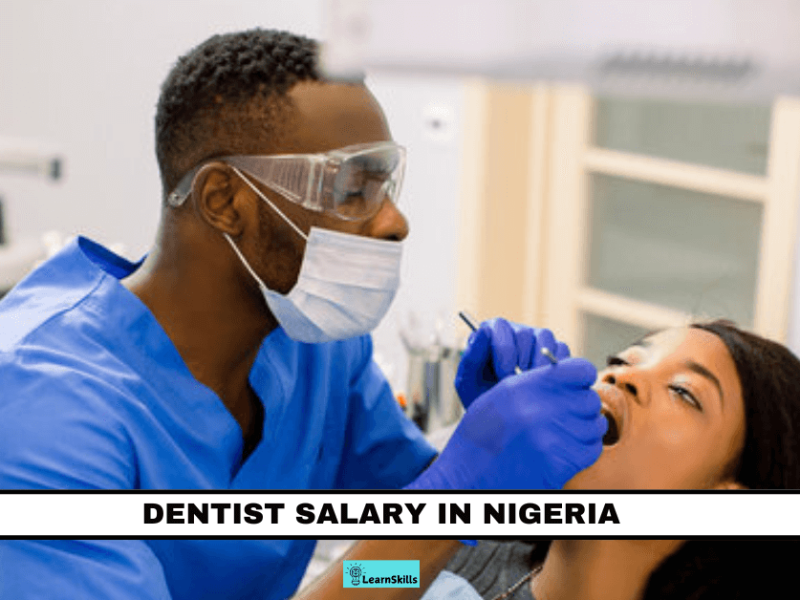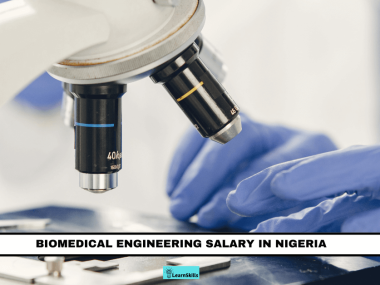If you are considering a career in dentistry in Nigeria, it’s important to know what to expect in terms of salary.
Dentists’ earnings can vary widely based on experience, location, and type of practice. In 2025, the average salary for a dentist in Nigeria is approximately ₦3,200,000 yearly.
As you explore this rewarding profession, you’ll find that junior dentists may start with salaries of around ₦240,000 per month, while those with five to ten years of experience can earn between ₦300,000 – ₦600,000 per month.
Investing your time and effort into becoming a dentist is personally and financially rewarding. By staying informed about the salary trends in Nigeria, you prepare yourself for a successful future in a field that is crucial to healthcare.
Overview of Dentistry in Nigeria
Dentistry plays a crucial role in maintaining oral health in Nigeria. As awareness of dental care rises, there are more opportunities in the field. Understanding the importance of dental health and the job market will help you better navigate this profession.
Dental Health Importance
Oral health is essential for overall well-being. Poor dental hygiene can lead to serious issues like tooth decay, gum disease, and systemic health problems.
The rise in dental issues in Nigeria highlights the need for better dental care and education. Many communities don’t have access to dental services, which makes preventive care critical.
Improving your oral health can prevent diseases and improve your quality of life. Regular check-ups and treatments from qualified dentists are vital. Emphasizing education on proper oral hygiene can lead to healthier practices within communities.
Job Market for Dentists
The job market for dentists in Nigeria is gradually expanding. With an increasing population, the demand for dental services is higher than ever.
Many dentists work in private practices, while some are employed in hospitals or community clinics. The financial rewards can vary significantly based on location and experience.
Estimates state that dentists earn between NGN 239,551 and NGN 542,540 monthly. Specialists tend to earn more, reflecting their advanced skills and training. Networking and continuing education are key to advancing in your dental career.
As awareness of oral health continues to grow, job opportunities in dentistry are expected to increase, offering a promising future for you in this field.
Dentist Salary Structure
Compared to other health workers’ earnings, dentist salaries in Nigeria are influenced by various factors. Understanding these elements helps clarify what you can expect as a dentist in different locations and situations.
Factors Influencing Salaries
Several factors determine how much a dentist earns in Nigeria including experience, location, and the type of practice.
Experience: New dentists often earn lower salaries than those with a few years of practice. An entry-level dentist may earn around ₦179,000 monthly, while experienced dentists can make more.
Location: Salaries differ between cities. For example, dentists in Lagos can earn a monthly average of ₦242,500, while those in other areas, like rural regions, may earn less.
Type of Practice: Working in a private clinic can lead to higher pay compared to public health facilities. Additionally, some dentists receive a hazard allowance, which adds to their income.
Comparative Analysis With Other Health Workers
When comparing dentist salaries to other health workers, the differences become clear.
Doctors: Medical doctors typically earn more. While dentists make around ₦260,393 monthly in Lagos, doctors can earn significantly more, often between ₦350,000 to ₦500,000.
Nurses: Registered nurses earn less than dentists, with average salaries often falling between ₦150,000 and ₦200,000.
Salary Scale: Many health workers, including dentists, follow the Consolidated Medical Salary Scale. This scale establishes defined pay ranges based on experience and qualifications, helping standardize salaries within the health sector.
The differences in earning potential highlight the variations in medical professions and the importance of choosing a career that fits your goals and expectations.
Perks and Additional Benefits
Dentists in Nigeria often enjoy a range of perks and additional benefits that enhance their overall compensation beyond just salary. These benefits can significantly impact job satisfaction and financial security.
Insurance and Allowances
As a dentist, you typically receive various insurance policies as part of your benefits package. This often includes life insurance, which provides you and your family financial protection in case of unexpected events.
Many employers also offer health insurance that covers medical expenses, which can be especially beneficial given the demands of your job.
In addition to insurance, you may receive allowances for certain expenses. These can include allowances for professional duties or home office support.
If you work with nurses or midwives, you might also have access to benefits that apply broadly to health workers, helping to ensure a supportive work environment.
Career Advancement Opportunities
Career growth is vital in any profession, and dentistry in Nigeria offers various advancement paths. Many practices provide access to continuing education programs that help you acquire new skills or specializations. This increases your value as a dentist and opens doors for high-paying positions in specialized fields.
You might also find programs that encourage mentorship or networking with experienced professionals.
Establishing these connections can lead to opportunities for promotions or roles in leadership. These benefits make it easier for you to build a successful career while ensuring job satisfaction.
Working Conditions of Dentists
The working conditions for dentists in Nigeria can vary significantly based on the clinic type, patient load, and overall environment. Understanding these factors can help you gauge the realities of a dental career.
Clinic Environment
You will typically work in a clinical setting, from small private practices to large hospitals. The environment is designed to be clean and organized, promoting patient safety and comfort.
- Equipment and Tools: Modern tools like digital X-rays and sterilization equipment help patient care be effective and hygienic.
- Support Staff: You will likely collaborate with dental nurses and assistants who help in managing patient flow and maintaining the clinic.
The layout is usually efficient, allowing you to focus on treatments while minimizing distractions. Due to the higher number of patients in larger facilities, you may encounter a more stressful atmosphere.
Patient Load and Stress Levels
Patient loads can vary widely. In busy clinics, you may see numerous patients daily leading to tight schedules and increased stress.
- Time Management: You may need to balance multiple treatments within a limited timeframe. This requires excellent time-management skills and the ability to prioritize tasks.
- COVID-19 Considerations: Working during COVID-19 will likely involve extra precautionary measures, such as wearing protective gear and managing patient anxiety regarding health safety.
While high patient volumes can create stress, maintaining open communication with your team can help ease the pressure. Ensuring you have sufficient breaks and support is also essential for your well-being.
Strategies for Maintaining Good Dental Health
Caring for your teeth is essential for healthier teeth and a vibrant smile. Here are effective strategies you can follow:
Brush Twice Daily: Use fluoride toothpaste and a soft-bristled toothbrush. Brush for at least two minutes each time to remove plaque.
Floss Daily: Flossing helps clean between your teeth where your toothbrush cannot reach. Make it a daily habit to prevent gum disease.
Visit Your Dentist Regularly: Schedule dental check-ups at least twice a year. These visits can catch problems early and keep your smile healthy.
Eat a Balanced Diet: Focus on fruits, vegetables, whole grains, and lean proteins. Limit sugary snacks and drinks that can damage your teeth.
Drink Plenty of Water: Staying hydrated helps wash away food particles and bacteria. Water is also good for your overall health.
Avoid Tobacco Products: Smoking and chewing tobacco can lead to oral health issues like gum disease and oral cancer.
Use Mouthwash: A good mouthwash can help reduce plaque and prevent gum disease. Choose a product with fluoride for extra protection.










